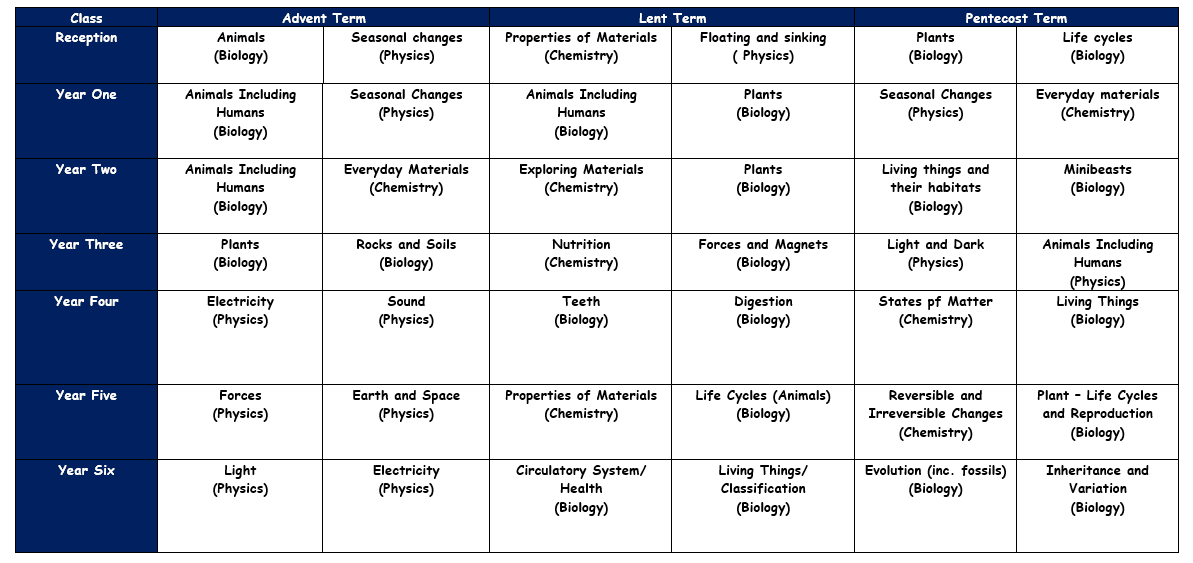National Curriculum Programme of Study
National curriculum in England: science programmes of study – GOV.UK (www.gov.uk)
Level Expected at the End of EYFS
Early Learning Goals that link most closely to the Science National Curriculum
Understanding the World (The World)
Children know about similarities and differences in relation to places, objects, materials and living things. They talk about the features of their own immediate environment and how environments might vary from one another.
Intent
At St Norbert’s, we strive to develop in all young people a lifelong curiosity and interest in the sciences. When planning for the science curriculum, we intend for children to have the opportunity, wherever possible, to learn through varied systematic investigations, leading to them being equipped for life to ask and answer scientific questions about the world around them. As children progress through the year groups, they build on their skills in working scientifically, as well as on their scientific knowledge, as they develop greater independence in planning and carrying out fair and comparative tests to answer a range of scientific questions. At St Norbert’s, we ensure that children have a varied, progressive and well-mapped-out science curriculum that provides the opportunity for progression across the full breadth of the science national curriculum for KS1 and KS2.
Implementation
The acquisition of key scientific knowledge is an integral part of our science lessons. The progression of skills for working scientifically are developed through the year groups and scientific enquiry skills are of key importance within lessons. Each lesson has a clear focus. Scientific knowledge and enquiry skills are developed with increasing depth and challenge as children move through the year groups. Our pupils complete investigations and hands-on activities while gaining the scientific knowledge for each unit. These allow teachers to assess children’s levels of understanding at various points in the lesson. They also enable opportunities to recap concepts where necessary. The sequence of lessons helps to embed scientific knowledge and skills, with each lesson building on previous learning. There is also the opportunity to regularly review and evaluate children’s understanding. Activities are effectively differentiated where necessary so that all children have an appropriate level of support and challenge.
Impact
Science progress is measured through a child’s ability to know more, remember more and explain more. The impact of using the full range of resources included in the science unit will also be seen across the school with an increase in the profile of science. The learning environment across the school will be more consistent with science technical vocabulary displayed, spoken and used by all learners. Whole-school and parental engagement will be improved through the use of science-specific home learning tasks and shared use of knowledge organisers. Children who feel confident in their science knowledge and enquiry skills will be excited about science, show that they are actively curious to learn more and will see the relevance of what they learn in science lessons to real-life situations and also the importance of science in the real world.






